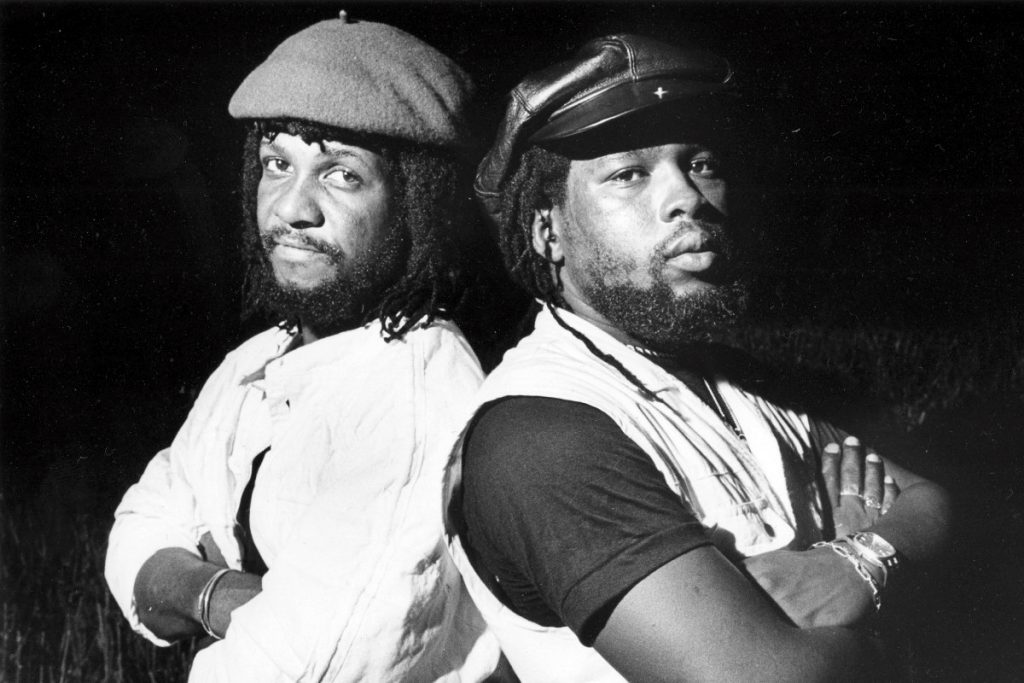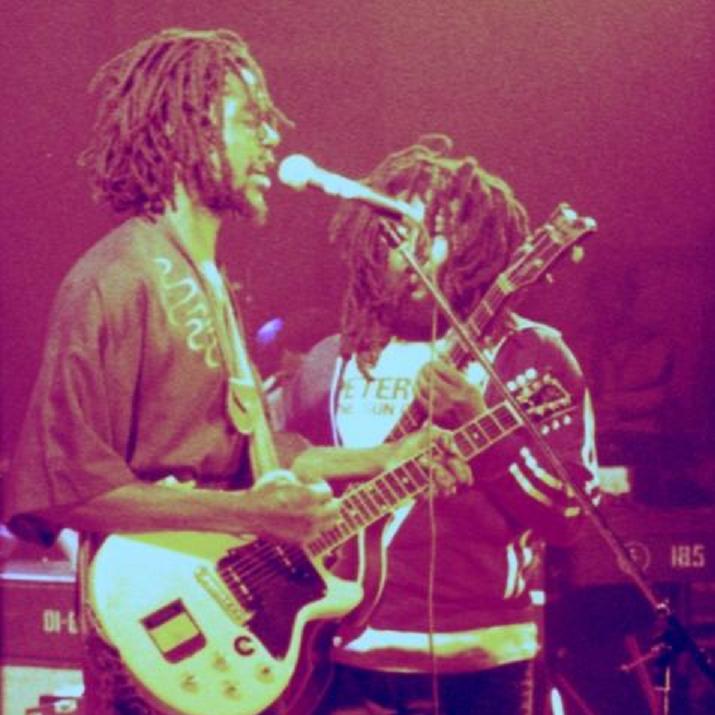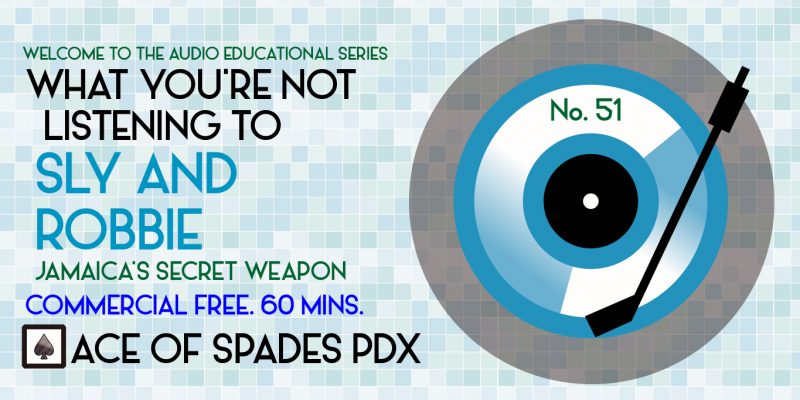Podcast: Play in new window | Download | Embed
Even though Bob Marley was crucial to the development of Reggae and Jamaican music, it was Sly and Robbie who gave it an expansive new vocabulary. #Reggae #Dub #Dancehall #Ska
People who aren’t familiar with Jamaican music believe that it is all Reggae and that it begins and ends with Bob Marley. Now, if that were all you knew about it, yes, you would be mistaken, but at least have a good starting point. Believing this, however, would be like saying California music is all sunshine, beaches and surfing and that all you needed to know was Brian Wilson.
Before Reggae music become synonymous with the island, there was an entire music scene that blended Caribbean rhythms with American R&B and Soul, namely in the genres that preceded it, such as Bluebeat, Ska and Rocksteady, as well an genres that were birthed out of it, such as Dub, and those that followed it, such as Dancehall.

Part of the backbeat of all of these genres are the long-running duo Sly Dunbar and Robbie Shakespeare. Individually and collectively, they have played not only on thousands of recordings by Jamaican artists, such as Black Uhuru and Peter Tosh, they have also worked with a number of international artists as well, including Mick Jagger, Madonna and even an ex-pat, Grace Jones, which cemented their reputation.
I was looking at the whole electronics thing and I bought the Syn-drum which became the Taxi main tool.
Sly Dunbar
Starting off working in different bands, they two formed a lifelong friendship and working collaboration based upon their influences, which were heavily influenced by 1960’s American Black artists, but then pushed the envelope by introducing whole new instruments to musicians, including electronic drums and synthesizers. There are also expert arrangers on instruments they don’t even play, even creating horn charts.
Seeing their potential early on, Island Records founder Chris Blackwell, who’s first major commercial breakthrough was with a Jamaican artist named Millie Small, hired the duo to work at his state-of-the-art recording facility at Compass Point in the Bahamas. Never ones to rest on their laurels, Sly and Robbie also launched their own studio and label in Jamaica, Taxi.

This isn’t meant to be a definitive list of their accomplishments, nor is it meant to a complete overview of the variety of artists they worked with, which could easily be 10 hour-long programs and only scratch at their work. The focus of this program are on artists originally from the island known to locals as “out of many, one people.”
This is a brief tribute to a duo who are still recording and performing, still stretching and still making the case that you may only be as good as your band, which, in today’s pop musical climate of Pro-Tools processed auto-tuned everything, is a major accomplishment in of itself.
First Part
- Double Barrel, Dave and Ansell Collins
- My Jamaican Guy, Grace Jones
- Leaving to Zion, Black Uhuru
- Sitting and Watching, Dennis Brown
- Nuff Gal, Beenie Man
- Go Seek Your Rights, The Mighty Diamonds
Second Part
- Oh, What A Feeling, Gregory Issacs
- Black Starliner Must Come, Culture
- Murder, She Wrote, Chaka Demus and Pilers
- Skull and Crossbones, Sly & Robbie
- Don’t Stop The Music, Bits and Pieces
Finale
- Bush Doctor, Peter Tosh
Love to you all.
Ben “Daddy Ben Bear” Brown Jr.
Host, Producer, Audio Engineer, Researcher, Webmaster and Writer
“Copyright Disclaimer Under Section 107 of the Copyright Act 1976, allowance is made for ‘fair use’ for purposes such as criticism, comment, news reporting, teaching, scholarship, and research. Fair use is a use permitted by copyright statute that might otherwise be infringing. Non-profit, educational or personal use tips the balance in favor of fair use.”
